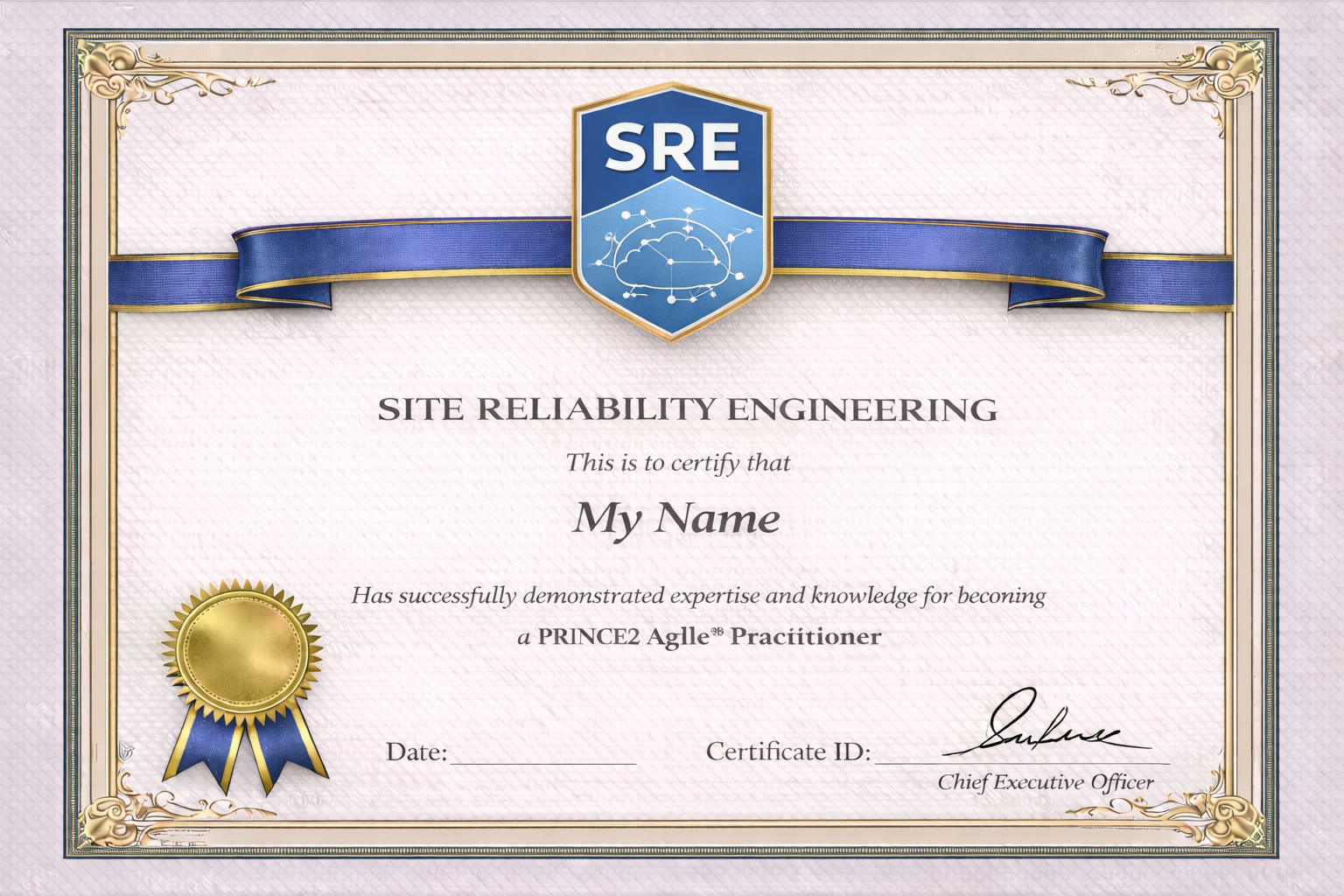Site Reliability Engineering (SRE) Course Overview
Site Reliability Engineering (SRE) is a discipline that incorporates aspects of software engineering and applies them to infrastructure and operations problems. The SRE Certification Training equips professionals with the skills and knowledge to design, deploy, and maintain scalable and highly reliable systems. It focuses on the implementation of best practices for improving system reliability, performance, and scalability.
The training program covers key SRE principles such as automation, monitoring, incident management, capacity planning, and change management, which are crucial for maintaining the availability and reliability of services in a fast-paced and complex IT environment.
High Demand for SRE Professionals: As more organizations adopt cloud technologies, microservices, and DevOps practices, there’s a growing demand for SRE professionals who can ensure the reliability, scalability, and performance of complex systems.
Skillset Expansion: This certification will give you the opportunity to expand your technical skills in areas such as automation, system monitoring, performance tuning, and incident response.
Bridge Between Development and Operations: SRE helps bridge the gap between software engineering and operations, enabling you to work more effectively in DevOps environments.
Increased Career Opportunities: As organizations prioritize system reliability, SRE roles are becoming crucial to their IT infrastructure. The certification will open doors to advanced positions such as Site Reliability Engineer, DevOps Engineer, and Cloud Infrastructure Engineer.
The job market for Site Reliability Engineers is rapidly growing. Organizations, especially those that operate in the cloud or manage large-scale distributed systems, need professionals who can ensure the reliability and efficiency of their infrastructure.
Roles available to SRE certified professionals include:
Site Reliability Engineer
DevOps Engineer
Cloud Infrastructure Engineer
System Reliability Manager
Automation Engineer
Infrastructure Engineer
Performance Engineer
Operations Engineer
The scope of SRE is broad, covering a variety of industries including tech companies, e-commerce platforms, financial institutions, healthcare providers, and more. The adoption of cloud computing, microservices architecture, and containerization is expected to fuel the demand for SRE professionals.





